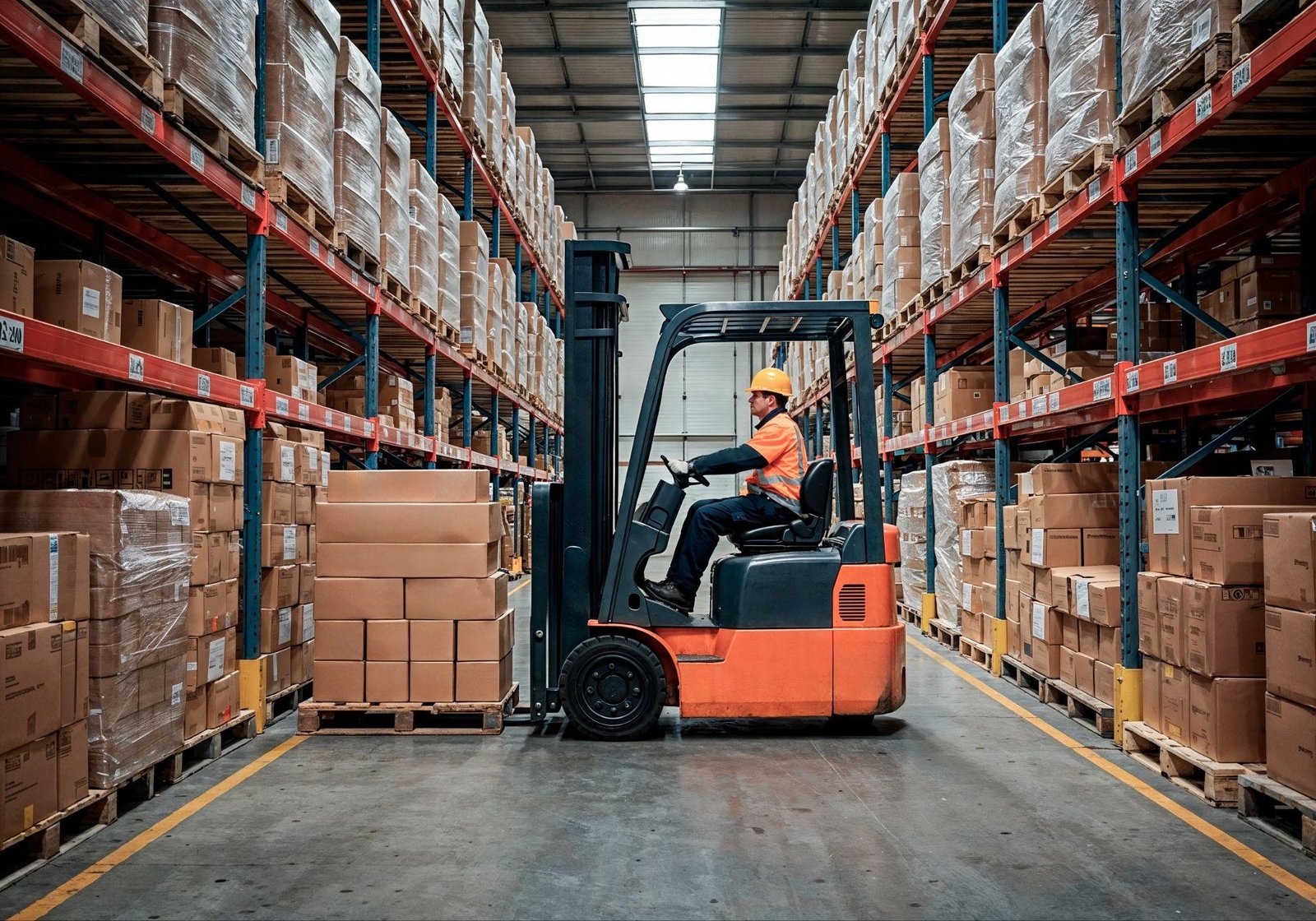If you’ve ever had one break down right in the middle of a rush order, you know it’s no joke. It’s like your entire workflow gets punched in the gut.
This isn’t just another PSA about oil changes. Forklift maintenance is so much more than that, and if you treat it like a quick check-the-box task, you’re setting yourself up for some real trouble. Let’s dig into why regular care for your forklifts isn’t just nice to have—it’s critical.
Contents
- 1 Why Forklift Maintenance is More Than Just an Oil Check
- 1.1 Reason 1: Prevent Unexpected Breakdowns
- 1.2 Reason 2: Extend the Lifespan of Your Equipment
- 1.3 Reason 3: Improve Workplace Safety
- 1.4 Reason 4: Stay Compliant with Legal & Industry Standards
- 1.5 Reason 5: Save on Costly Repairs
- 1.6 Reason 6: Boost Operational Efficiency
- 1.7 Reason 7: Maintain Consistent Load Handling
- 1.8 Reason 8: Keep Fuel or Energy Consumption in Check
- 1.9 Reason 9: Support Higher Resale Value
- 1.10 Reason 10: Create a Culture of Accountability
- 2 Conclusion
- 3 FAQ’s
Why Forklift Maintenance is More Than Just an Oil Check
It’s easy to assume that tossing in new oil now and then keeps your forklift in shape. But think about it—would you drive your car 50,000km with only oil changes?
Not likely. Forklifts are no different. There’s wear and tear happening every day, on tires, chains, hydraulics, brakes… and ignoring those? That’s when chaos starts to creep in.
This kind of maintenance isn’t about checking off a list—it’s about keeping the heart of your operations alive and kicking. Let’s walk through the top 10 reasons that prove just how crucial this really is.
Reason 1: Prevent Unexpected Breakdowns
Sticking to a solid forklift maintenance schedule helps catch those small issues before they blow up. A squeaky brake, a loose hose, or a low fluid level might not seem like much until it all adds up to a forklift on life support.
Reason 2: Extend the Lifespan of Your Equipment
Routine maintenance helps keep all the moving parts in sync, prevents early wear, and gives your machine a chance to hit its full potential lifespan. Think of it like this—maintenance is like brushing your teeth.
Reason 3: Improve Workplace Safety
A forklift with failing brakes or jerky steering isn’t just annoying—it’s dangerous. We’re talking serious safety risks for operators and everyone nearby. When you prioritize forklift maintenance, you’re also showing your team that their safety matters.
Reason 4: Stay Compliant with Legal & Industry Standards
Let’s not forget—you’ve got rules to follow. Whether it’s OSHA, Safe Work Australia, or another local authority, there are real guidelines for how forklifts should be maintained.
Reason 5: Save on Costly Repairs
There’s no sugarcoating it—repairs can eat into your budget fast. But you know what’s usually cheaper? Preventing the problem in the first place.
Regular maintenance helps you catch those warning signs early. A loose belt today might be a burned-out engine tomorrow. Small fixes cost less than big ones every time.
Reason 6: Boost Operational Efficiency
Here’s less waiting, less breakdown time, and fewer surprise delays. Well-maintained forklifts lift quicker, move cleaner, and handle loads with less fuss. And that translates into better flow, faster turnaround times, and happier clients.
Reason 7: Maintain Consistent Load Handling
Forklifts handle a lot of weight, literally. If their systems aren’t calibrated and checked regularly, you might start to see sloppy load handling—jerky lifts, uneven forks, or slow responses. That kind of inconsistency isn’t just inefficient—it can damage products, racks, or worse.
Reason 8: Keep Fuel or Energy Consumption in Check
Worn-out engines or dirty filters force your forklift to work harder than it should. That means higher fuel or battery usage—and higher bills. Regular maintenance keeps engines running clean, filters fresh, and batteries in top shape.
Reason 9: Support Higher Resale Value
Let’s say you’re ready to upgrade. A forklift with a documented maintenance history is going to fetch a way better price than one with a “meh, we kinda looked after it” reputation.
Buyers want proof it’s been cared for. Service logs, regular check-ups, and clean operation records can make your used forklift stand out in a crowded market.
Reason 10: Create a Culture of Accountability
Operators who do daily checks, report early issues, and stay on top of their gear are more engaged, more responsible, and take more pride in their work. That kind of culture? It spreads across the whole floor.
Conclusion
So here’s the deal—forklift maintenance is more than just oil and filters. It’s the difference between chaos and calm, between reactive repairs and smooth sailing.
If you’re not sure where to begin or want to hand it over to a forklift dealer in the USA who truly gets it, PRG Equipment has your back. From routine service plans to urgent forklift repairs, they know what it takes to keep your gear running strong.
FAQ’s
Q1. How often should forklift maintenance be done?
Ans: It depends on usage, but a general rule is every 3 months or 250 operational hours—whichever comes first.
Q2. What’s included in a standard forklift maintenance check?
Ans: Fluid levels, tires, brakes, battery, forks, hydraulics, steering, and any visible wear or damage.
Q3. Can I do forklift maintenance myself, or do I need a professional?
Ans: Daily checks can be done by operators, but deeper maintenance should be done by a certified technician.
Q4. Does forklift maintenance really help save money?
Ans: Absolutely. It reduces breakdowns, avoids costly repairs, and improves efficiency—all of which add up.
Q5. Is maintenance different for electric forklifts vs. diesel ones?
Ans: Yes—electric forklifts need battery care and different system checks, while diesel ones require engine-focused inspections.
